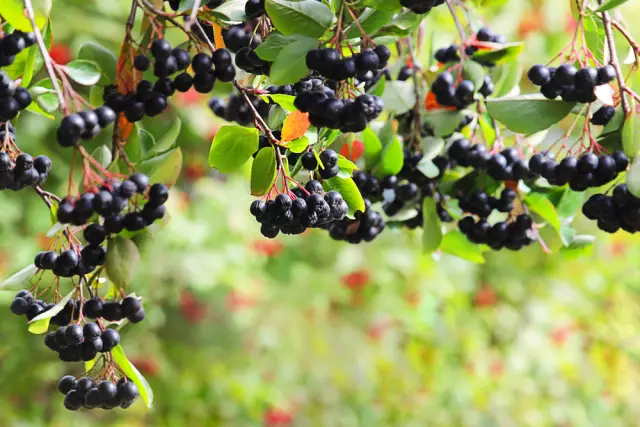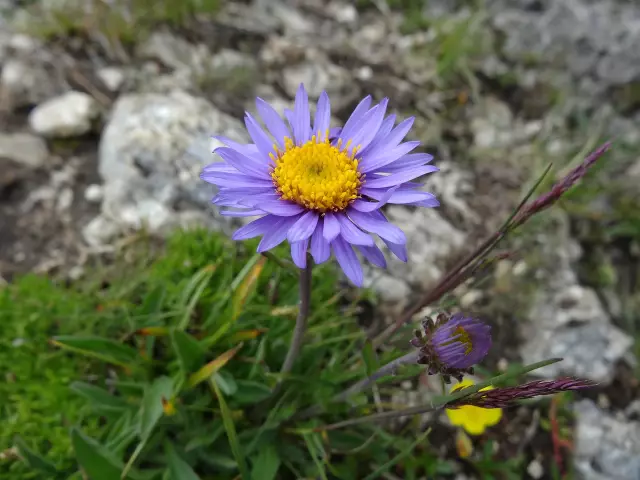- Author Rachel Wainwright wainwright@abchealthonline.com.
- Public 2023-12-15 07:39.
- Last modified 2025-11-02 20:14.
Ziziphus
Have you ever tasted the fruits of ziziphus? According to scientists, they are able to defeat hypertension if they eat two dozen fruits daily for three months. The benefits of ziziphus are that its fruits strengthen the immune system, increase lactation, and also perfectly tone the body no worse than tea, coffee, ginseng and eleutherococcus. Due to its healing properties, ziziphus is one of the five best medicinal plants in the world, and is recognized not only in folk, but also in scientific medicine.

The origin of ziziphus
Only in our country is this plant known as ziziphus, in other regions and countries it is called unabi, yuyuiba, Chinese date, breast berry, anab, silon, ilan jida, etc. Ziziphus - ideally takes root in any arid climate, but it comes from China. In this country, the plant has been cultivated for more than four thousand years and today more than 400 varieties of it are grown. However, in Japan, the Himalayas, Asia Minor and Central Asia, and of course, in China itself, you can find the wild predecessors of the ziziphus. Unabi is a tree with an average height of 3 to 8 m, although in China it can grow up to 20 m, and in India - up to 30 m.
When the fruits of zizyphus ripen - round fleshy drupes - they fall off along with the shoots on which they grow, therefore, in the homeland of this tree, the fruits are not harvested, but simply shaken off with poles. Not only fruits are valuable, but also wood, which lends itself well to polishing, as well as bark, which is used for tanning leather.
The benefits of ziziphus
It is no coincidence that this shrub is one of the five most valuable medicinal plants. The benefits of ziziphus are not only in its calorie content, although 100 g of the edible part of the fruit contains 59-100 kcal. The main feature of this plant is the high content of vitamin C in the fruit. In addition, the fruit pulp contains vitamins B1, B2, B5, beta-carotene, steroids.
Ziziphus fruits are rich in:
- Calcium;
- Potassium;
- Phosphorus;
- Iron;
- Magnesium;
- Cobalt;
- Iodine.
Roots, bark and leaves contain alkaloids, tannins, saponins, steroids, coumarins and other valuable compounds. Ziziphus leaves also contain rutin.
In folk medicine, all parts of the plant are used, from fruits to wood. For medicinal purposes, mainly fresh fruits are used, but dried ziziphus can also be used. Unabi fruits are used as a blood pressure regulator to help cope with colds and coughs. In some cases, they are used for liver and kidney diseases, anemia, high cholesterol, tuberculosis, nervous exhaustion, and also as a tonic for recovery from infectious diseases.
In folk medicine, much more is known about the properties of ziziphus. For example, representatives of oriental medicine use unabi fruits to normalize metabolism, with gastritis, neurasthenia, asthenia, depression, chronic infections, rheumatism and various forms of tuberculosis. The plant is also known as an anti-inflammatory agent for diseases of the respiratory tract, for example, a decoction of ziziphus helps with shortness of breath, bronchitis, cough, whooping cough, hence one of the names - "breast berry".
In Central Asia, fresh and dried ziziphus is used as a hemostatic, expectorant, emollient, as a drug against angina pectoris, ascites, gastralgia, and cystitis. In Tajikistan, ziziphus is revered as a fruit that improves vitality. It is also used for inflammatory diseases of the oral cavity.
As mentioned above, the properties of ziziphus are not limited to the healing benefits of its fruits. Other parts of the plant are also used for medicinal purposes. For example, in Korean medicine, the bark of trees is used, from which a remedy for pain in the stomach and intestines is made. And drugs are prepared from the leaves to lower blood pressure.

You can try old recipes yourself to appreciate the benefits of ziziphus. For example, for the treatment of colds in combination with a high temperature, it is recommended to grind 10 unabi fruits with 20 plums and honey. From the resulting mixture, make balls the size of a plum, which is recommended to be taken one per day. With poorly healing skin lesions, it is recommended to brew ziziphus and often rinse the diseased areas with the broth. For the treatment of abscesses and abscesses, it is recommended to prepare an ointment from the leaves of the ziziphus. To do this, mix 100 g of fresh leaves and 500 g of oil, after which the mixture is heated, without bringing to a boil, and insisted for 14 days.
But of course, besides its medicinal properties, ziziphus also has gastronomic value. Although its fruits themselves have a mediocre taste, they produce wonderful juices, marinades, jams, marshmallows. Various drinks are prepared from dried ziziphus. And, perhaps, the rarest and most nutritious delicacy is candied fruit from ziziphus. What is very valuable, after processing, the fruits retain up to 95% of vitamins and biologically active compounds - this is about 40 times more than in apples and pears. And if you still hesitate to taste this valuable fruit, then it is worth trying.
YouTube video related to the article:
Found a mistake in the text? Select it and press Ctrl + Enter.






